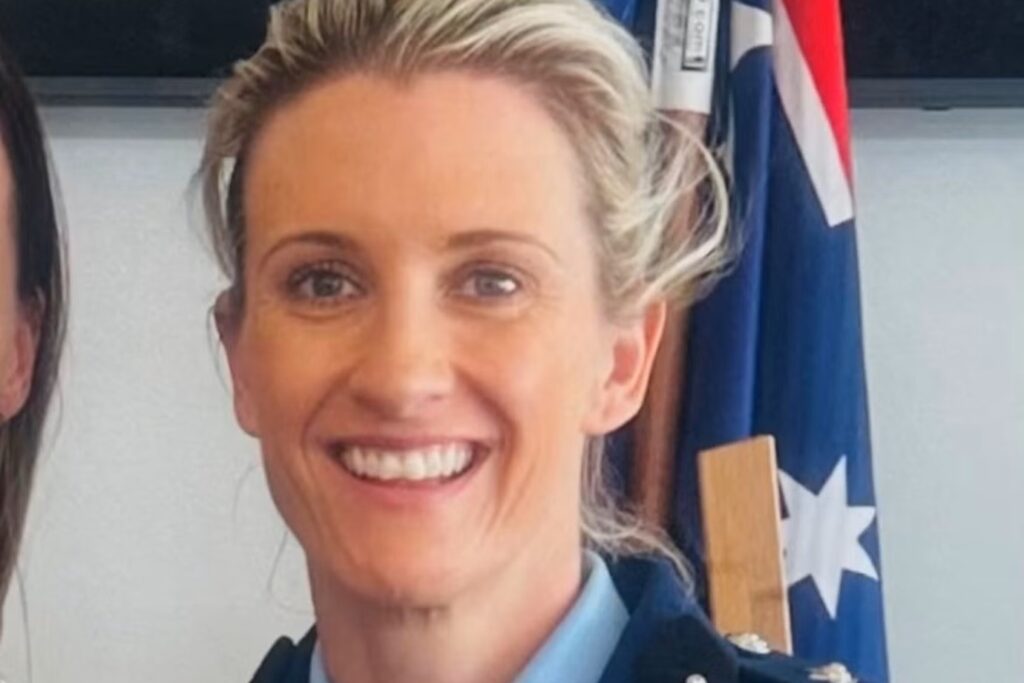The heroic actions of Australian police officer Amy Scott have been given well-deserved, high praise following Saturday’s tragedy in Sydney’s east.
As Inspector Scott had been performing routine checks at Westfield Bondi Junction, a man entered the shopping centre at about 3pm and stabbed multiple people.
The first responder to the scene, Inspector Scott bravely chased the attacker Joel Cauchi through the mall.
It’s been reported that when Cauchi lunged at her with his knife, she shot him down and then began to administer CPR. He is now deceased.
“There is no doubt that she saved lives,” Prime Minister Anthony Albanese said about the incident, calling the man’s stabbing spree “a horrific act of violence”.
Five women and one man lost their lives in the attack, and twelve people were taken to hospital. Police have said many others have presented independently with minor injuries. Three people – a woman, man and a nine-month-old baby girl – remain in critical condition.
NSW Police Commissioner Karen Webb also praised Inspector Scott, saying, “she showed enormous courage and bravery,” along with other first responders on the scene and other people and shopkeepers who took action to protect people at the mall.
Webb noted that Inspector Scott was receiving the support she needed for the time-being.
Supporting female first responders
As more details emerge and witnesses share their accounts of the tragedy, it’s clear that first responders to the scene were true heroes.
Many of these first responders were women, and many will now be dealing with the physical and mental effects of attending to the injured and dying.
This includes Inspector Scott, whose heroic actions Albanese has described as “a reminder that those people who wear uniform are people who rush to danger, not away from it”.
Women make up more than half of NSW Ambulance ranks. These women work across the state’s emergency service in many roles, including as paramedics, aeromedical crews, nurses, doctors, specialist rescue crews, call takers and dispatchers, and corporate and support staff.
Data from 2023 shows that 86.7 per cent of New South Wales’ nursing profession is made up of women – one of the most female-dominated occupations in the state.
And although rates of women first responders are increasing in what’s historically been male-dominated careers, such as police officers and EMTs, there is little research focusing on this group specifically. This is despite the higher risk of occupation stressors and mental health symptoms that first responders face.
Without adequate research on the female first responder experience, the care designed to support first responders is often geared toward men.
In an Australian-first study looking into female first responders, research found that these women are more likely to experience burnout, psychological distress and post-traumatic stress disorder.
Led by Helen Frazer from the University of Adelaide, the team surveyed 422 female first responders. The responses showed exposure to unpleasant teasing in the workplace was associated with a three-fold increase in higher scores for PTSD/psychological distress. There was also a lack of workplace trust and respect from participants.
Collective trauma
As Sydneysiders and the whole of Australia comes to terms with Saturday’s horrific events in Bondi, the mental health of those affected is critical.
Trauma recovery expert Natalia Rachel has said the stabbing attack at Bondi Junction is a “collective trauma” for so many people involved and that “it’s something that we need to make space as a community to support healing”.
NSW Health has declared a disaster mental health response and deployed additional staff trained in trauma and grief counselling to Bondi Junction and on the 24-hour phone helpline at 1800 011 511.
“If anybody rings who’s been impacted by the events of Bondi yesterday, their call will be expedited,” NSW Health chief executive officer Deb Wilcox said.
“They’ll speak to a trained clinician who can give them any additional referrals and any further advice they might need.”
If you’re struggling, know that help is available 24/7.
Lifeline: Call 13 11 14, text 0477 13 11 14 or chat online.
Kids Helpline: Call 1800 55 1800 or chat online.
Beyond Blue: Call 1300 22 4636 or chat online.
1800RESPECT: Call 1800 737 732, text 0458 737 732 or chat online.
13 Yarn: Call 13 92 76.
MensLine Australia: Call 1300 78 99 78.
If you or someone you know is in immediate danger, call Triple Zero (000).


